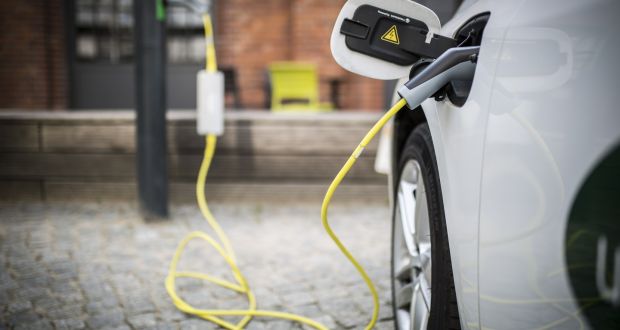Only 3% of cars registered in 2019 were electric

Only 3% of the 117,000 newly registered cars in 2019 were electric
A total of 117,000 new cars were registered here in 2019 but only 3 per cent of those cars were electric, despite the huge push by the government towards EV technology.
The Irish government is expected to publish new draft legislation very soon banning the sale of petrol and diesel vehicles by 2030.
The figure of 117,100 new vehicles registered was down 6.8% on 2018 when 125,671 new vehicles were registered. Light Commercial Vehicle (LCV) registrations dropped slightly from 25,447 in 2018 to 25,350 last year. In the same period, there was an increase of 2.5% in HGV vehicle sales with 2,654 registered in 2019 compared to 2,590 in 2018.
Percentage of new cars registered 2019
-
Diesel - 47%
-
Petrol - 41%
-
Hybrid - 9%
-
Electric - 3%
-
Plug-in hybrid - 1%.
Interestingly there was a record number of used cars imported into the country last year, which was for the second consecutive year. The number of used cars registered in Ireland rose from 100,755 in 2018 to 113,926 used imports registered, which was a 13.1% increase.
Although 3,444 new electric cars were registered in 2019 in comparison to 1,233 the previous year. It still only represented just 3% of the overall number of new cars registered. With a ban on sales of all new petrol and diesel cars in just 10 years time, these figures are not really that impressive?
The five top-selling car brand in Ireland in 2019 were:
-
Volkswagen
-
Toyota
-
Hyundai
-
Ford
-
Skoda
The five top-selling car models last year were as follows:
-
Toyota Corolla
-
Hyundai Tucson
-
Nissan Qashqai
-
Volkswagen Tiguan
-
Skoda Octavia
Richard Bruton, the so-called Climate Action Minister said earlier this week that motorists planning on buying new cars in 2020 “should reassess electric” and consider purchasing an electric car?
So, even though electric cars are far more expensive, have less range and absolutely abysmal charging infrastructure in this country, this government wants everyone to be a pioneer and adopt to electric? Many drivers are rightly sceptical of the governments' plans as even when an EV owner finds a charge point, a lot of them are not working and now we have to pay for the privilege as well. Minister Burton went on to say:
“I think there are many pioneers that want to purchase electric vehicles now and I encourage them, and we financially encourage them to do so, and we’ll ensure there is a charging network to support them,”
“I recognise that there are many people who will continue to purchase traditional vehicles.
“People need to recognise that if they are considering purchasing over the next couple of years not everybody will be buying this year they should reassess electric as an alternative.”
Bruton admitted that the cost “might be dearer upfront” but the cost of running the car over its lifetime “compensates for much of that”.
The Irish government plans to double the amount of EV charging points this year and that by 2025 the number of new electric cars on the road will jump from 12% to 14%.
Author

Justin Kavanagh
Justin Kavanagh is a recognised leader
in automotive intelligence and vehicle
data supply to the entire motor industry.
He has almost 20 years experience in
building systems from the ground up.
As the Managing Director of Vehicle
Management System, he understands the
need and importance of trustworthy and
reliable vehicle history and advice to
both the trade and the public.
Follow me on LinkedIn